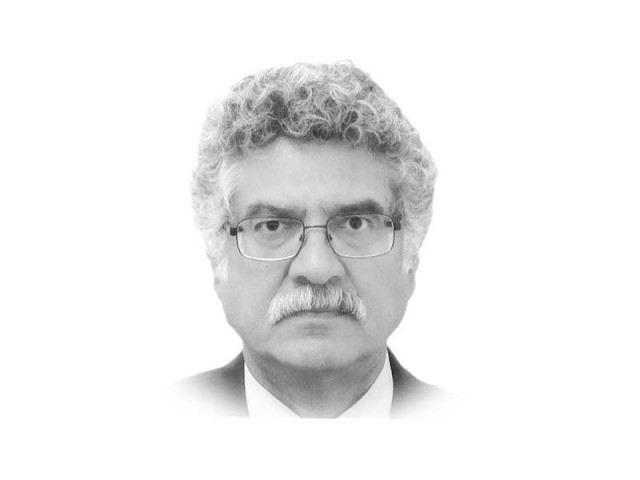Foreign policy reality check
Pakistan should not be beguiled by American talk of any 'reset' of strategic relations

The writer is a former Ambassador of Pakistan. The views expressed here are his own
Such a reality check demonstrates quite clearly that the “reset” in relations advocated by the Trump administration is driven by tactical considerations and are not due to any strategic convergence. The American tactical objective is obvious — Pakistan’s cooperation is crucial for achieving a face-saving withdrawal from 18 years of conflict in Afghanistan. But this is still not a done deal. If and when that is achieved, the prospects are that relations with Pakistan will be downgraded if not reverted to the hostility of the past.
This has been our experience, especially since the end of the Cold War. The highs and lows in our relations have essentially been driven by transactional considerations. American discrimination and pressure through wide-ranging sanctions over our nuclear programme during the 1970s was replaced by an “alliance” when Pakistan’s cooperation was needed to bleed the Soviets in Afghanistan during the 1980s. Once the Soviets withdrew in 1989, nuclear sanctions under the Pressler Amendment were re-imposed in 1990. These were further strengthened after the nuclear tests in 1998 even though Pakistan had been forced to respond to the Indian nuclear tests in order to ensure credible deterrence for its security. Not only had the US failed to prevent its new found ally, India, from once again proliferating nuclear weapons in South Asia but placed Pakistan in the same dock with the culprit. But, yet again, after the terrorist attacks on the US on September 11, 2001, Pakistan was back in favour because the US needed its cooperation for the invasion and occupation of Afghanistan to counter the terrorist threat from al Qaeda and the Taliban. Pakistan was not only designated a non-Nato ally but a strategic partner, offered a Free Trade Agreement and given large doses of economic and military aid. (However, in retrospect none of these measures made a material difference for Pakistan — apart from increasing our debt burden). The relationship quickly soured when Pakistan was blamed for the American failure to militarily defeat the Taliban on the spurious grounds that Pakistan supported the Taliban. The real reasons were America’s own acts of omission and commission. Even worse, there has been no appreciation for Pakistan’s help in defeating al Qaeda, the 70,000 dead due to the war on terror or the nearly 100 billion dollars spent in this effort, apart from the millions of Afghan refugees on Pakistan’s soil, criminalisation of our society due to the inflow of extremism, arms and drugs and the denial of more than 700 million dollars of the CSF.
Throughout this cyclical relationship based on transactional interests, there has been no strategic convergence between the two countries that can serve as an anchor for a truly enduring partnership. The American need for Pakistan’s cooperation now is also driven by the assistance we can provide for a political settlement in Afghanistan.
Even so, it provides a window of opportunity for Pakistan to further its own interests by ensuring that in return for our assistance, the US enforces closure of Indian-sponsored TTP bases in Afghanistan, supports Pakistan’s measures to seal the border with Afghanistan, facilitates return of Afghan refugees and reimburses CSFs monies. Once this window closes, the US will not be willing to help Pakistan and may even revert to its earlier pressure tactics, including on the nuclear issue which still remains on its agenda. Accordingly, we should not be beguiled by American talk of any “reset” of strategic relations.
It should be clear to us that from the strategic perspective there is a growing divergence in Pakistan-US relations resulting from the US-China confrontation in which India has become America’s strategic partner as a counterweight to China. Moreover, Pakistan’s own strategic relations with China, especially now with CPEC, complicate American efforts to contain China. Therefore, we should be careful to resist American machinations to sow dissension between Pakistan and China, especially by trying to undermine CPEC, the cornerstone of Sino-Pakistan relations and the opportunity for substantive socio-economic development in the country. Contrary views in Pakistan such as “not putting all our eggs in China’s basket” are self-defeating since, in reality, there is no American basket.
All this is not to argue that Pakistan should abandon relations with the US but to point out that we should be realistic and not pursue short-term tactical relations with the US at the cost of our strategic long-term partnership with China. This is simply because there is no possibility of a strategic convergence with the US for the foreseeable future whereas there is and will continue to be a strategic convergence with China, as with other powers like Russia, in an increasingly multi-polar world. This is the reality check that must guide our foreign policy.
Published in The Express Tribune, February 1st, 2019.
Like Opinion & Editorial on Facebook, follow @ETOpEd on Twitter to receive all updates on all our daily pieces.















COMMENTS
Comments are moderated and generally will be posted if they are on-topic and not abusive.
For more information, please see our Comments FAQ